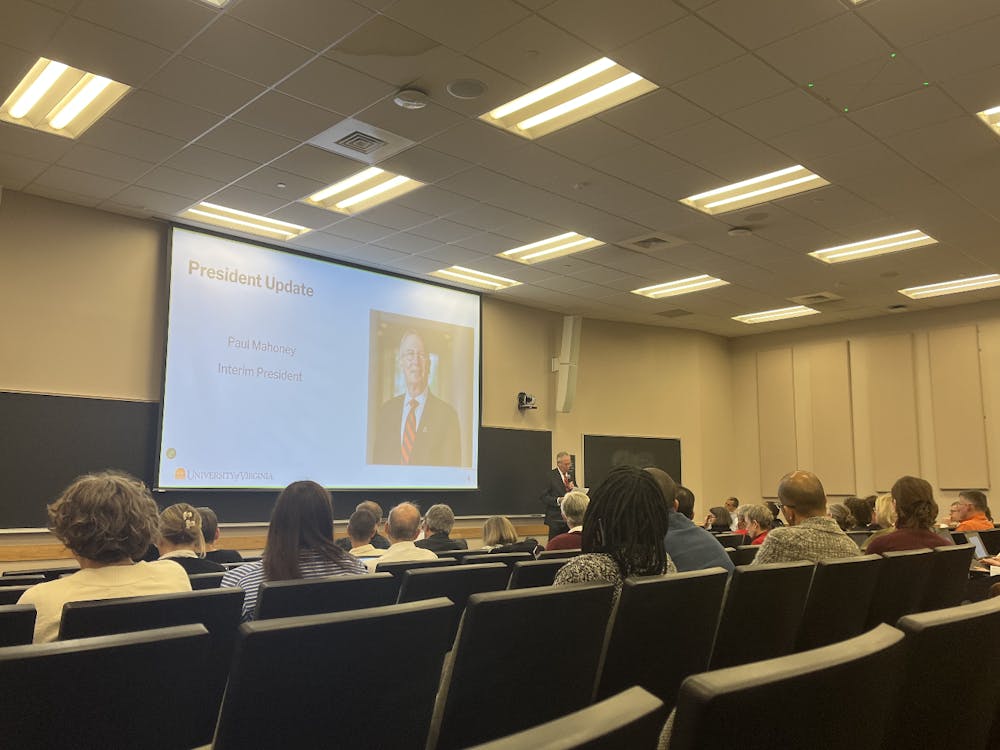A study commissioned by the Inter-Fraternity Council found that spring rush has not financially undermined the fraternity system and was, on the whole, successful.
Two Darden students, Edward F. Davis and James M. Grimes, conducted the study, analyzing fraternity revenues, pledge class sizes and numbers of rushees from both before and after formal rush moved to the spring.
Former Dean of Students Robert T. Canevari made the decision to move rush in April 1998 despite fraternity leaders' protests about self-governance and damage to the Greek system.
Davis and Grimes found that not only was there a higher number of rushees than in previous years, but also that there was a higher yield of pledges from the Spring 2000 rush class.
"There doesn't seem to be a compelling financial reason to move rush back to the fall," said Assoc. Dean of Students V. Shamim Sisson, who is serving on a committee chaired by Dean of Students Penny Rue to examine spring rush.
We are "pleased to see that the IFC was using the resources of Darden to take a good look at their system," Sisson said.
Although the study found that the move from fall to spring rush did not affect the overall number of fraternity pledges, it did find that there was a growing disparity in pledge class sizes among different houses.
Inequity among houses "is not indicative of a strong system" and indicates problems, IFC President Justin Saunders said.
Saunders said the increasing gap between "strong houses" and "weak houses" is a result of the disruption caused by deferred rush.
"Financial losses are still there, they just haven't been quantified," he said.
In their report, Davis and Grimes recommended increased communication between the IFC and first-year students during the fall semester.
The study also found that the loss of one semester of pledge dues did not critically damage the fraternity system.
Davis said housing revenues are the main source of income for fraternities and if they can keep their houses full, spring rush should not be financially detrimental. They recommended that the University discourage students and housing agents from signing early leases or discourage large breach of contract payments for broken leases so pledges have the opportunity to live in fraternities their second year.
The study did not make any recommendations for alleviating the IFC's concern that deferred rush weakens fraternal bonds.
Phi Kappa Sigma president Austin Wilson said the "spiritual impact on fraternity life" was the worst effect of deferred rush. Wilson said that by delaying rush, new brothers miss out on the opportunity of living together as second years and only have one semester to meet fourth-year members.
The committee examining spring rush will make recommendations for strengthening the Greek system at the June meeting of the Board of Visitors.






